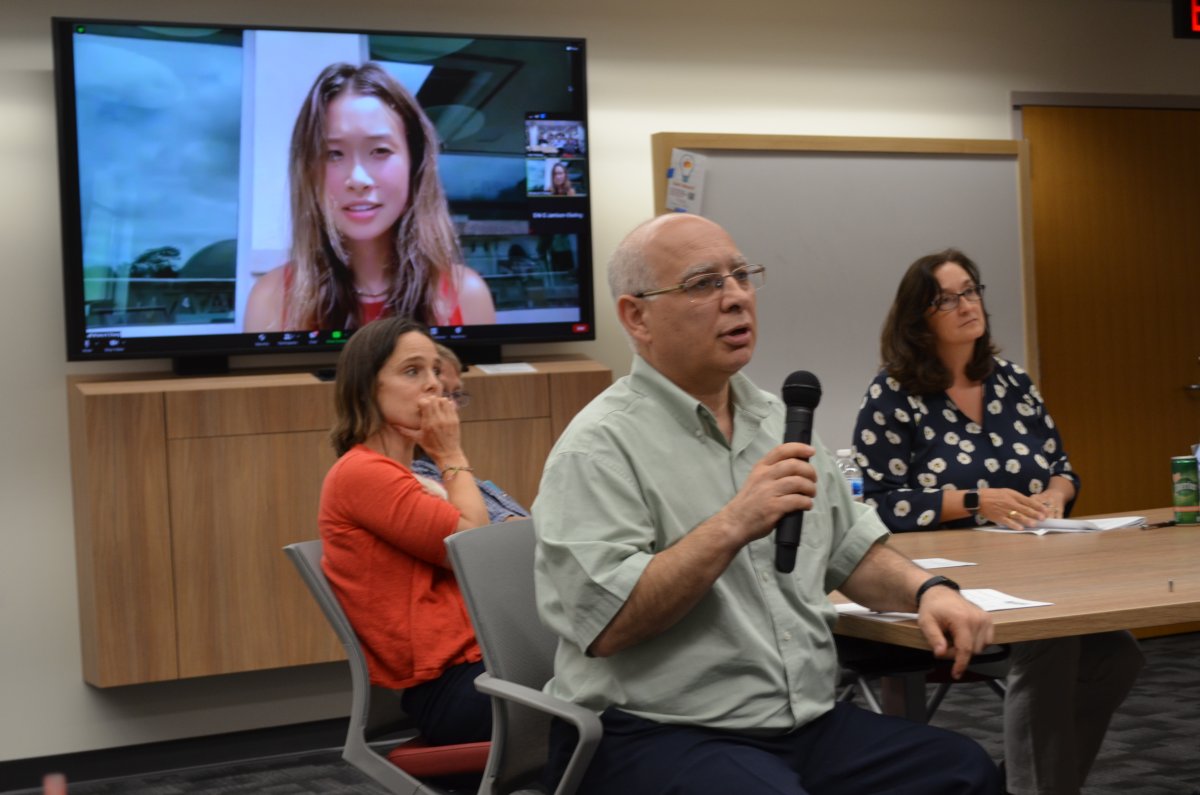Student Entrepreneurs Pitch Tech Startups at BASE Event

Beneath the glowing neon sign for The Toaster -- the U's innovation hub in Walter Library -- a group of student entrepreneurs gathered Thursday night for the first round of Business Accelerator for Student Entrepreneurs (BASE) presentations. Seven student-led teams pitched their science and technology-based business concepts to an audience of industry leaders and project mentors.
It’s the first student cohort from the recently-formed BASE. Director Mark Sanders had led a similar accelerator for science and tech students at the University of Texas at Austin. Thursday's event is designed to kick off a new means for U of M students to bring their ideas and innovations to the marketplace.
Before the teams gave their pitches, Sanders encouraged the mentors and business pros to give unvarnished feedback
“What I hope you’ll do is put some pressure on these students, ask them some tough questions,” Sanders told them. “It’s okay -- they won’t fall apart.” Students aren’t in a competition that will name winners and losers, Sanders stressed. Rather, they’re at the beginning of an eight-week process of refinement that will lead each team to their own “Go / No-Go” decision – a determination of
whether the business idea is viable enough to continue pursuing.
The business proposals are varied and interesting, and all have a technology focus. Some of the plans offer innovative new technological processes that were superior to current methods; others were refinements on existing processes.
Zachary Xiong and Doug Hoang represented FemtoFluidics LLC. They pitched an electronic device to replace expensive liquid-handling robots used for DNA tagging with an innovative electronic device with no moving parts, using an electronic grid on a printed circuit board.
OncoFluidX, represented by Biomedical Engineering Ph.D candidate Elizabeth Crist, pitched a research tool that enables in-vitro testing of anticancer therapeutics, a method that promised to be more reliable and less costly than live animal testing.
The third pitch of the evening came from Gast Technology Group owner and network design engineer Glenn Toby. His concept was a scalable IT and computer security service for small and medium size businesses, offering both fee-for-service and subscription models.
Chip Specker from Groupit was up next, with a concept for providing backup for a user’s entire list of social media contacts, across all the platforms they use.
Erik Jamison-Ekeling played a demonstration video of a device prototype called The Assist that helps sled hockey players easily enter and exit the ice, using a cart-like device deployed beneath the sled itself.
Briana Chang unveiled her design for the Handheld Urinal for Healthcare. This portable, spill-proof male urinal is designed for patients in health care facilities and home healthcare situations. It’s a medical device that is both easier to use and more ecologically friendly than current models.
The final presentation came from Avni Tripathi representing Theodora Pillow, LLC, a student team which has developed a pillow specifically designed for breast cancer survivors and women recovering from breast-related surgeries.
Each 5-minute pitch was followed by a 10-minute Q&A from the mentors and industry leaders. This was what Sanders described as the “pressure test”, in which student entrepreneurs fielded questions designed to poke holes in their concept. There were no shortage of incisive, probing questions: Is this concept unique enough to stand out in the marketplace? Have you filed a patent on this process? Is the potential market for your product large enough to be sustainable? How many units would you need to sell at this price point in order to be profitable? Couldn’t the leading companies in this industry just mimic your business model and drive you out of the market?
The students stood up well to the questioning, sometimes deftly parrying the objections, other times admitting they hadn’t thought through a particular problem, or didn’t yet have a solution.
The BASE kickoff is the first step in an eight-week program of concept refinement that will culminate in August when the entrepreneurs pitch to the same audience again.
"Some of the concepts will be modestly refined over the eight-week period," Sanders said. "Others will change quite drastically as the students re-think their concept and maybe pivot to something better. And some might conclude that their concept just isn't viable and they should move on to something else."
The final presentations and Go / No Go decisions will take place at the Toaster on August 4.